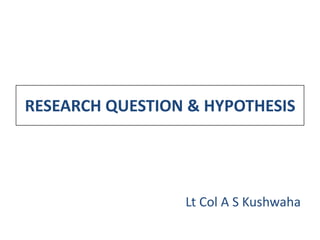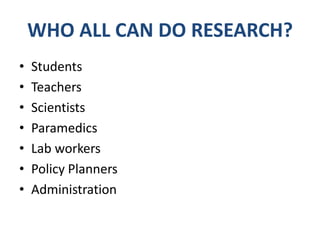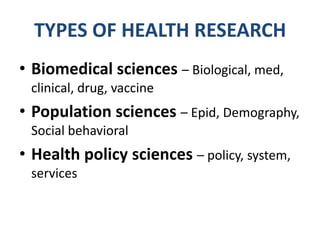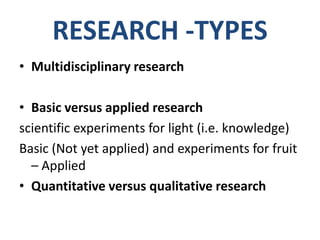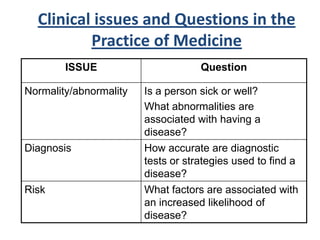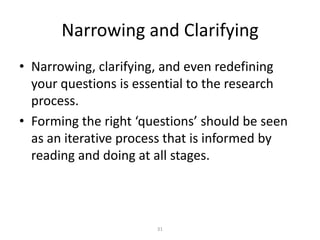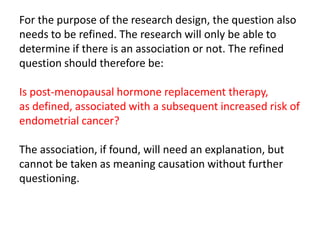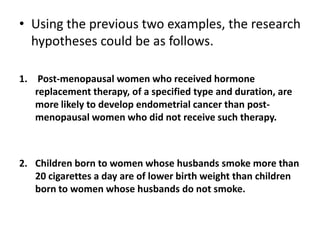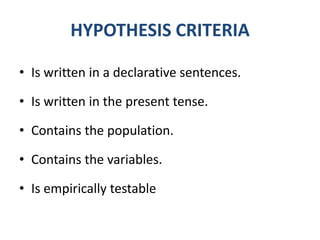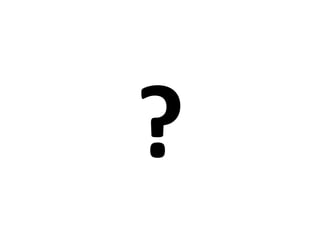Here are the answers to your questions:
1. FINER criteria of a good research question are: Feasible, Interesting, Novel, Ethical, Relevant.
2. A null hypothesis is a statistical hypothesis that predicts that no relationship exists between two variables.
3. The types of relationships that may exist between two variables are: positive, negative, or no relationship.
4. Read around comes first before read into. Read around gives a broad overview of the topic area, while read into involves an in-depth review.
5. The literature review is often called the "mother of the research" as it helps identify gaps and formulate the research question.
6. If we
